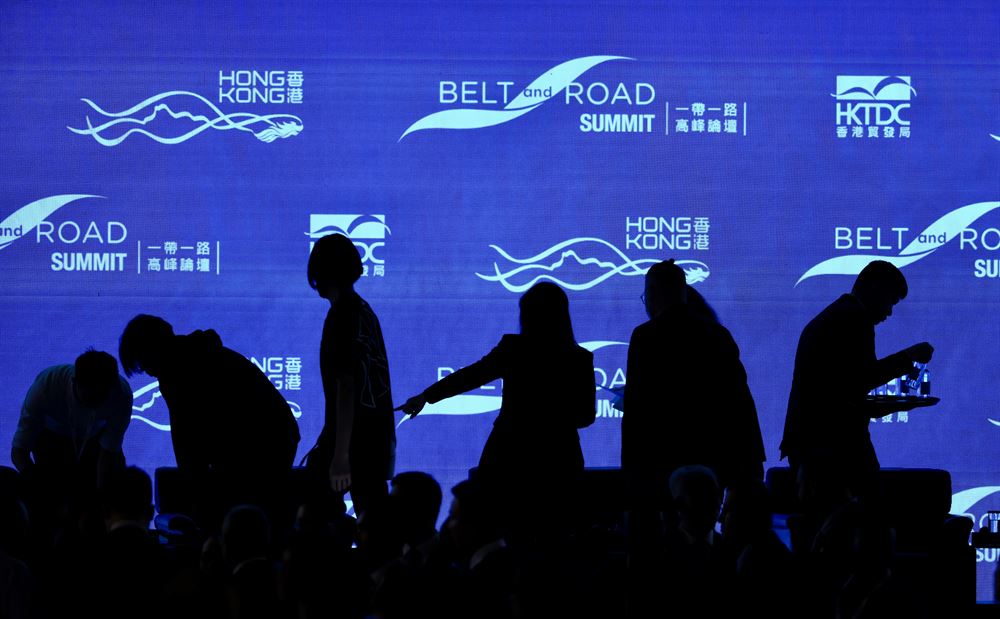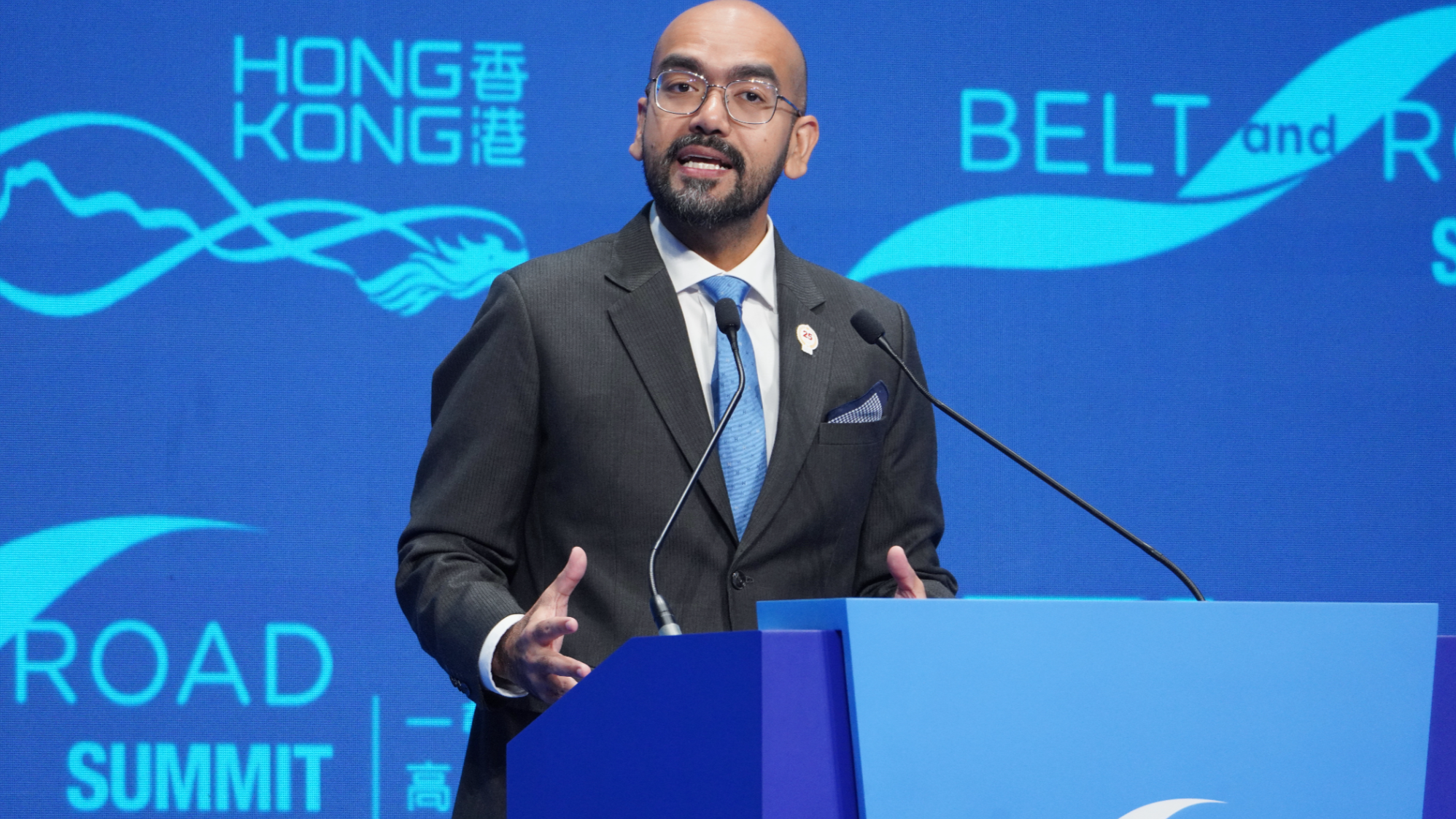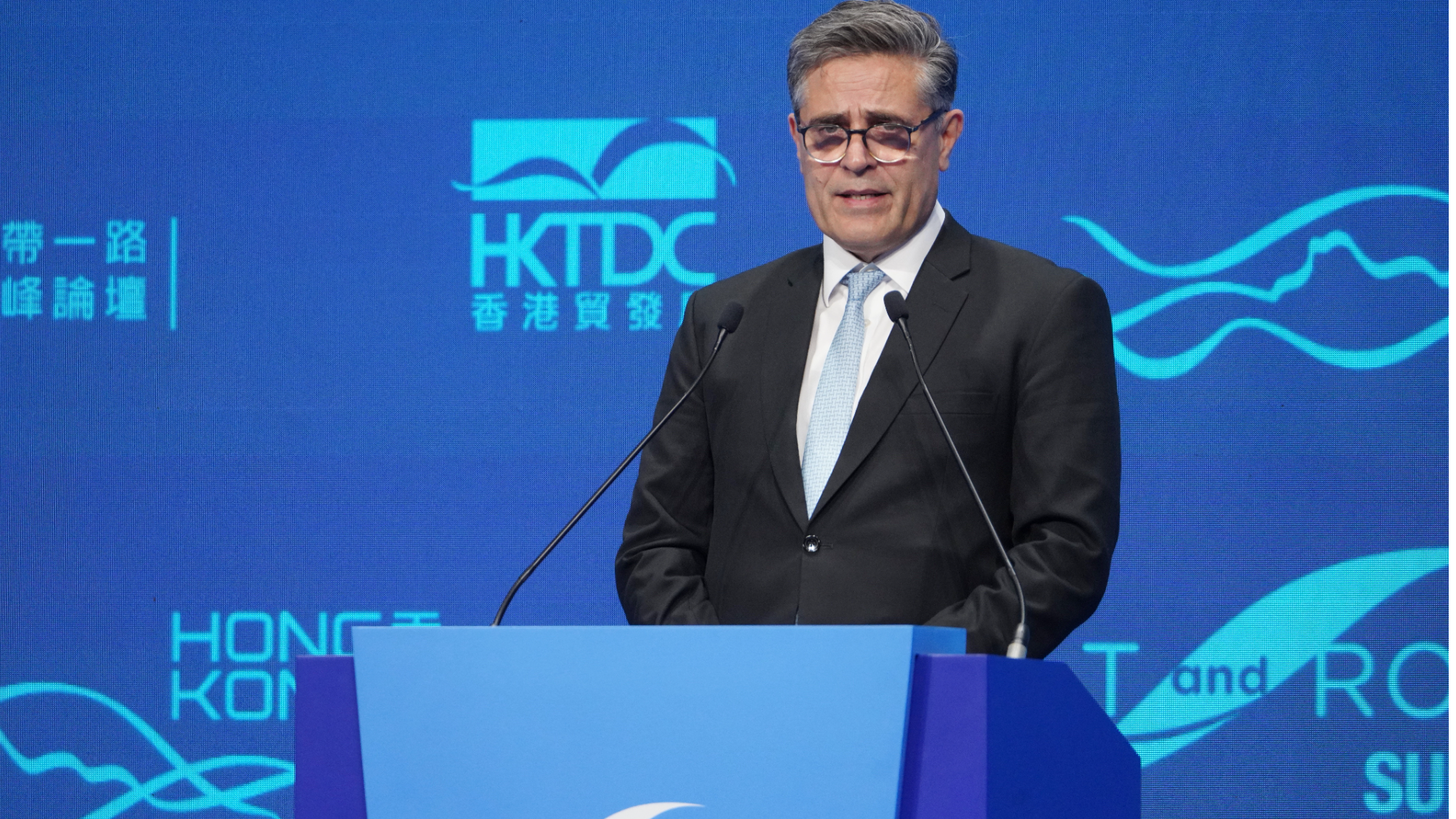
Diplomats and senior government officials from various countries acknowledged the role of China’s Belt and Road Initiative (BRI) in transforming people’s lives in the program’s recipient countries and regions, and in helping chart a more prosperous, resilient and inclusive future.
The remarks came at a “special address session” on Sept 12, the second and final day of the 9th Belt and Road Summit held in China’s Hong Kong Special Administrative Region.

Belarusian Minister of Foreign Affairs Maxim Ryzhenkov, the first speaker during the session, hailed BRI as one of the key elements in jointly building global civilization.
The initiative launched in 2013 amid global economic downturn and geopolitical tensions serves as a unique instrument, offering the Global South an opportunity for accelerated development, while containing no confrontation element toward anyone, including the European Union and the United States, he said.
“(The) initiative is not about separation, but about integration,” Ryzhenkov said.
Belarus joined the BRI without any doubts, the minister said. Now, it has a success story to celebrate in respect to relations with China and other partners under the BRI.
Belarus benefits from its strategic location, Ryzhenkov said, noting that his nation has also become a full member of the Shanghai Cooperation Organization.
“I would like to reassure you that for China and all the Belt and Road countries, Belarus will always be not only a window of opportunity in Europe, but also the most reliable anchor point there,” the minister said.

Khaled Fahad Al Alawi, assistant undersecretary for industrial development at Bahrain’s Ministry of Industry and Commerce, said the Belt and Road Summit offers a chance for participant nations to come together to shape an innovative and sustainable future for all.
There is unique opportunity to explore the immense possibilities that lie ahead for the Middle East and the Far East, whose links can trace back to the ancient Silk Road, he said.
“Today as we embark on a new chapter of global collaboration under the Belt and Road Initiative, we are reigniting the spirit of (that) connection … with new technologies, new markets and new dreams,” he said.
Al Alawi said that Bahrain and Hong Kong SAR, both gateways to their respective regions, hold a special place in this era. Bahrain stands as a beacon of progress in the Middle East, as it is open, ambitious and forward-looking, while Hong Kong SAR serves as a symbol of global commerce, innovation and resilience, he said.
By integrating artificial intelligence, automation and renewable energy, people in the two regions are laying the foundation for industries that are not only efficient, but also environmentally responsible, he noted.

Pakistan’s Ambassador to China Khalil Hashmi, another speaker at the event, said the Belt and Road Summit in Hong Kong has emerged as a pivotal forum, highlighting the theme of connectivity, innovation and green development.
Having worked for many years at the United Nations as Pakistan’s representative, he sees the theme completely aligns with the shared vision of sustainable development, which was agreed upon at the UN in 2015.
As only six years are left to achieve 17 sustainable development goals by 2030, many see those goals as elusive, but the BRI has continued to prove as an enabler for achievement of this shared aspiration, Hashmi said.
In his address, the envoy shared how Pakistan, as a lynchpin in BRI, presents opportunities for growth, investment and development, with the China-Pakistan Economic Corridor (CPEC) at its forefront.
Over the past decade, the CPEC has transformed Pakistan's investment and economic landscape with a $62 billion investment, he said. The strategic development of 800 kilometers of road networks and power transmission lines speaks to Pakistan's connectivity progress, Hashmi added.
“As we enter the second phase, the CPEC is evolving into a multi-dimensional corridor, a corridor of growth, innovation, livelihood, inclusiveness and green development,” he said.
He said that Hong Kong's FinTech, mobile banking and blockchain sectors are well positioned to tap the Pakistani market, which is ripe for innovative financial solutions.
Moreover, Pakistan's special economic zones, under the CPEC, provide an excellent platform for enterprises from Hong Kong SAR to establish manufacturing units, logistics hubs and financial services, the envoy added.
Contact the writer at vivienxu@chinadailyapac.com


